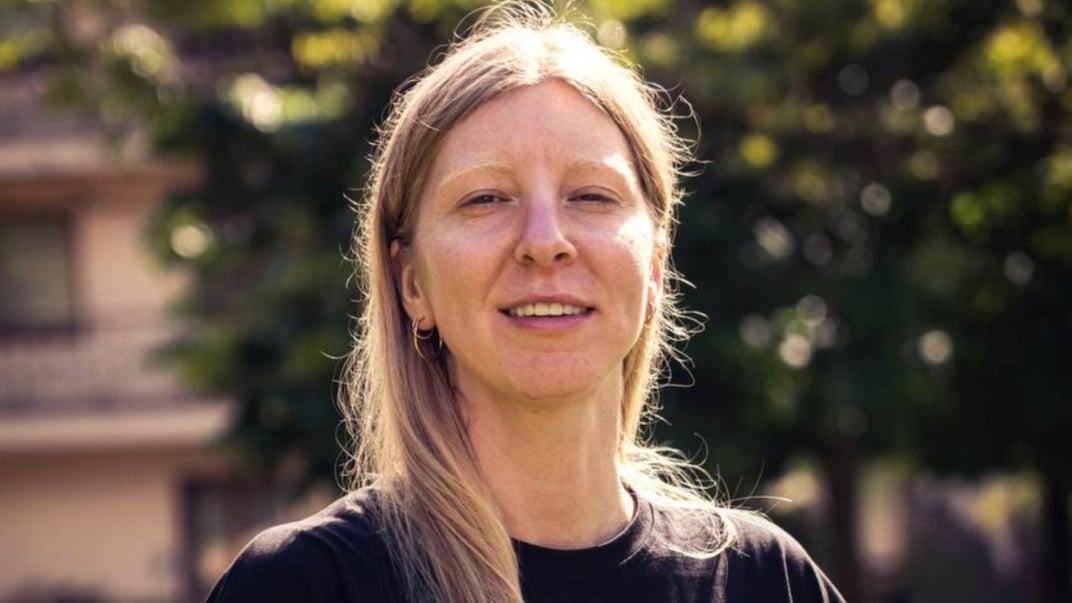Shelters, support for queer individuals, and assistance: how Uzhhorod has become a new home for the LGBTQ+ community.
 1
1In the initial weeks, representatives of the organization used their own funds to provide food and transportation for those affected. Later, they received support from the Swedish organization RFSL, which helped them establish a shelter.
“People stayed in the shelter for a few days to several months, depending on their circumstances and needs. For many, our shelter became an important transit point, a safe space where they could breathe and move on. Then we opened shelters for Ukrainian LGBTQI+ displaced persons in Slovakia: first in Košice, then in Bratislava. We also provided psychological consultations, transportation, and resources,” says Olga Polyakova, Executive Director of Gender Stream.
About the residents of the shelter and humanitarian aid
Volunteers assisted transgender individuals in obtaining documents, purchasing medication, and finding medical professionals.
 2
2Olga recalls the story of shelter residents Artem and Dima:
“Dima was forced to leave his native Donetsk region, while Artem came from Severodonetsk. Their paths crossed in Dnipro, where the guys met and fell in love. Since they no longer wanted to be apart, the couple began searching for a place where they could live safely and in harmony, and very soon Dima stumbled upon information about our shelter in the Transcarpathian region. They applied, went through an interview, and soon became part of our community.”
In 2023, the shelter closed as the urgent need diminished. Currently, Gender Stream provides humanitarian aid to those affected by the war.
 3
3Life-saving laws: on the criminalization of hate crimes
Together with the Department of the Chief Inspectorate and Human Rights Compliance, Gender Stream is developing guidelines and instructional materials for police officers so they know how to communicate ethically and professionally with LGBTQI+ individuals. The organization is advocating for the adoption of a bill that criminalizes hate crimes. This refers to Bill No. 5488, which was registered in parliament back in 2021. It aims to improve the response mechanism for cases of discrimination and the investigation of intolerance-based crimes.
“Even after the bill is passed, it is crucial that it is enforced, which is why we actively collaborate with the police. It is important that the law genuinely protects LGBTQI+ individuals, and for that, law enforcement must not only know the legislation but also understand how to communicate inclusively. This is why we organize training sessions for the police and expand cooperation with local authorities and law enforcement agencies to enhance interaction between LGBTQI+ individuals and state institutions,” Olga explains.
Inspector of the Patrol Police of Dnipropetrovsk region, Ksenia, underwent training on countering discrimination against vulnerable social groups from Gender Stream. She says that before the training, she didn’t even know what the term “queer” meant:
“During the training, I learned about the existence of queer people. Thanks to the training, I, like most of my colleagues, developed a positive attitude towards the community.”
 4
4How transgender individuals are supported in Uzhhorod
Transgender girl Kaya (pronoun “she” — ed.) fled from the shelling and missile strikes in Kharkiv with her ill mother.
“It was very hard and scary for me: my mom was having a panic attack, neighbors were fleeing with their belongings and suitcases since early morning, and the screams were heard throughout the house. From that day on, the windows and walls of our house shook every day from the explosions; we lived in the corridor because I couldn't take my mom down to the basement from the eighth floor,” Kaya recalls.
Before the full-scale invasion, the 28-year-old girl worked as a tram driver, was building a family with her partner Kay, and took care of her elderly mother. In the winter of 2022, Kaya's mother got injured and could no longer walk unaided. They could barely make ends meet, so the morning of February 24 was a difficult test for them.
She was assisted in evacuating. In Uzhhorod, she was welcomed by RFSL and Gender Stream.
“They helped my mom, and now she can walk again. We received psychological and legal support. The organization also helped my former partner and his sick mother leave the occupied territory, for whom I was very worried. I will never forget this,” Kaya added.
They assisted Kaya in obtaining documents — accompanying her from the military enlistment office to the border. Kaya now lives in Berlin. She is not the only person the organization has helped to cross the border.
“We provide consultations to people facing bureaucratic issues. Our experts also offer comprehensive support regarding legal border crossing, legal assistance in cases of discrimination, or hate-based attacks,” shares Olga Polyakova, Executive Director of Gender Stream.
Humanitarian aid, psychological counseling, and legal support
Gay Alliance Ukraine also assists LGBTQI+ individuals, including in the Transcarpathian region.
 5
5Since the fall of 2022, the organization has expanded its activities and launched a nationwide psychosocial support program for LGBTQI+ individuals affected by the war. This program aims to provide comprehensive assistance, including:
- a psychological support hotline (confidential consultations with qualified psychologists);
- humanitarian aid packages: hygiene products, food, medications;
- psychological counseling: individual and group sessions for overcoming traumatic experiences;
- legal consultations: assistance in resolving legal issues related to relocation and loss of housing;
- career counseling: support in job searching and professional development;
- support groups: creating a safe space for communication and experience sharing.
The program operates in all regions of Ukraine, except for temporarily occupied territories.
Contacts through which you can reach the above organizations if you need assistance:
- Gender Stream: https://www.facebook.com/GenderStream/
- Gay Alliance Ukraine: https://www.facebook.com/GayAllianceUkrain
Author: Anna Golyshevskaya
Text written with the support of n-ost.